A group of Spanish scientists have come up with a controversial theory that hints we may one day literally run out of time, as in, time itself will disappear from our universe. Wait, put that clock down, it’s not going to happen for a few billion years!
If there’s one thing we don’t understand but nevertheless take for granted, it has to be time. Time itself, not the artificial constructs we’ve been building around this dimension we still can’t understand. Most scientists agree that time began with the Big Bang, 13.7 million years ago and see it as an intrinsic dimension of the space-time continuum.
Our current understanding of the universe tells us it is expanding and the rate at which it does that is still accelerating. Astronomical data to support this phenomenon exists but no-one knows why this stretching of space occurs. One possible explanation is the existence of dark energy, a hypothetical form of energy ubiquitous throughout the entirety of outer space and thought to counter the effects of gravity, pushing matter away from matter.
Nobody can say for sure what dark energy is, where it comes from or even if it’s real or not. However, a group of Spanish scientists from the University of the Basque Country, Bilbao and the University of Salamanca propose a different approach, claiming that we’ve been looking at the whole universe expansion thing the wrong way. Their research seems to suggest the expansion isn’t accelerating, but time itself is slowing down. They solve the dilemma that is dark energy by bringing up an equally mysterious, yet somehow more apocalyptic notion. So how did they come to the conclusion that time might one day end?
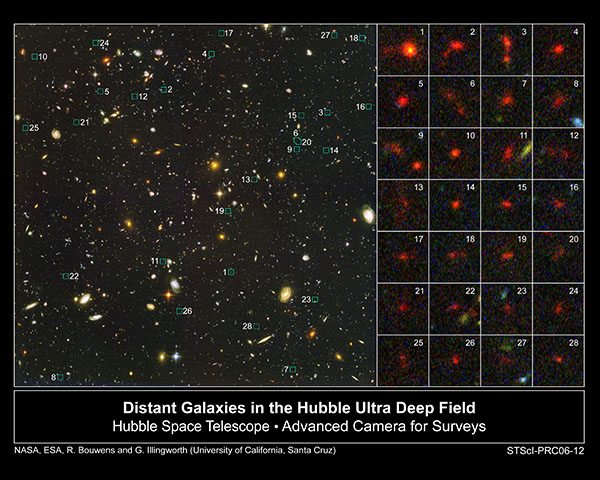
Astronomers discovered that the universe’s expansion rate is accelerating by studying the Doppler effect suffered by the light emitted by distant exploding stars or supernovae. Edwin Hubble was one of the first to observe that light from very distant stars and galaxies tended to be shifted towards the red end of the visible spectrum. The further away from us they were, the faster they were moving away. Conversely, light coming from stars that were moving closer to us suffered a blue-shift. This is the case with the Andromeda galaxy, which is expected to collide with the Milky Way in 5 billion years’ time.
But these measurements and most other cosmological ones depend on one value remaining constant throughout the universe: the passing of time. If time is slowing down, all calculations pertaining to the universe are erroneous.
If time gradually slows, but we naively kept using our equations to derive the changes of the expansion with respect of ‘a standard flow of time, then the simple models that we have constructed in our paper shows that an ‘effective accelerated rate of the expansion’ takes place”
This paints a grim scenario for the future of the cosmos, because if time is decelerating, at some point there won’t be anything left to slow down. Absolutely everything will remain frozen like a snapshot, forever or until the heat death of the universe does everything part, whichever comes first. Oh wait, without time nothing will occur, ever.
If the Big Bang created time, it makes perfect sense to assume that one day, the inverse process could happen, eliminating the fourth dimension.

This won’t help
One of the proponents of the thinning time theory, Professor José Senovilla says that time slowing down could be responsible for the illusion that the expansion of space is accelerating:
“We do not say that the expansion of the universe itself is an illusion,” he wrote. “What we say it may be an illusion is the acceleration of this expansion – that is, the possibility that the expansion is, and has been, increasing its rate.”
For us humans and our perception of time, such a change would be too minute to detect. But when considering the astronomical time and distances characteristic to the cosmos, the reduction in the flow of time becomes apparent and also measurable.
The only good thing about this scenario is that it won’t play out until Earth is long gone and by that time, humanity will have had enough time to leave its mark on this universe and perhaps migrate to greener pastures where time still passes.
So, if you were looking for a reason to stop wasting time, nothing motivates more than the idea that time itself might one day stop existing. Go appreciate the seconds you have, because they might all be numbered.
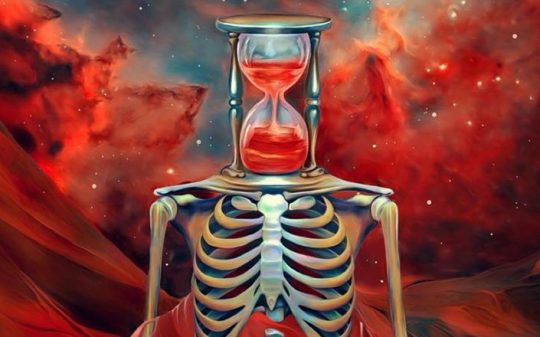
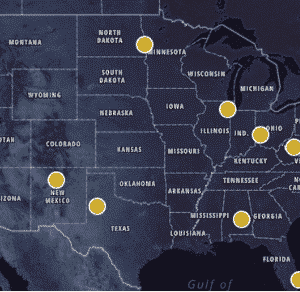


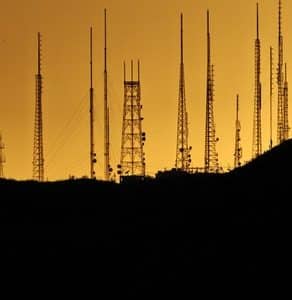


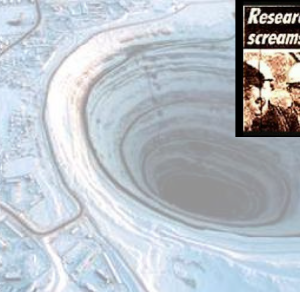


consciousness is expanding our universe ?